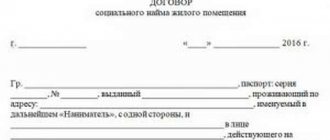Financial manager Pavel Kobyak answers:
There are several ways to enter into an inheritance.
First, open an inheritance case with a notary. Here, the heirs provide documents about their relationship with the deceased, and the notary asks government authorities whether the deceased has property. If there is property, then the notary issues a certificate of inheritance to the heirs. Secondly, this is to actually accept the inheritance. The actual entry into the inheritance means that the heir did not officially contact the notary and did not open an inheritance case to re-register documents. At the same time, he uses an inheritance, for example an apartment, after the death of the deceased.
Is it necessary to make a will?
Inheriting an apartment
In practice it looks like this. The apartment is registered to one of the parents. Children continue to live there after the death of their parents. They look after the property, make repairs, pay utility bills, and pay taxes. All these actions indicate the actual acceptance of the property by the heir. This case is very common in bankruptcy of individuals. In order not to give money to creditors through the sale of inherited property, they do not enter into inheritance. At the same time, they continue to live in the apartment of the deceased and bear the responsibilities of the owner of the property.
Alexey Chernykh, a lawyer at the TsDN real estate agency, answers:
The law provides for several ways to accept an inheritance, and Art. 1153 of the Civil Code of the Russian Federation describes the actual acceptance, which allows you to use the inheritance before the paperwork is completed. For example, the heir of the first stage - the daughter - lives in the apartment of the deceased mother and takes actions that prove taking possession: she takes measures to preserve the property, bears the costs of its maintenance and, I especially note, pays the debts of the testator, without which it is impossible to accept the inheritance! Checks and receipts for payment of expenses are also evidence of actual acceptance of the inheritance.
It is important to remember that within six months after the death of the testator, everyone who considers themselves entitled to become an heir must declare this. Before the expiration of this period, the one who has taken possession of the inheritance must contact a notary and obtain a certificate of inheritance, and in a controversial situation, if there are other applicants, he will have to go to court. Having received a title document from a notary or court, you can register your rights to this property.
How to get a share in an apartment after the death of your parents?
How to get a part of the house if the heir did not accept it?
Registration of children at the actual address of residence
The institution of registration restricts a citizen's right to freedom of movement. Therefore, registration, as an outdated legal norm, has given way to registration.
If the terms of the contract are not met, you can legally lose the right to use such housing.
At the same time, it is clear that this approach allows for the possibility of practically unprovable abuse of the rights of persons registered but not living in apartments provided under social tenancy agreements.”
Legal General Director Alexandra Brodelshchikova answers:
This means that the heir accepts the inherited property not through paperwork with a notary, but through treating this property as his own. For example, imagine the following situation. Before his death, the father lived in his own apartment with his adult children. After the death of their father, the children did not move anywhere, but continued to live in it, paid utilities and even made repairs. All of the above actions constitute actual taking possession of the apartment. The actual entry into inheritance is legal. This is one of the ways to accept an inheritance along with submitting an application to a notary.
However, everything is not so simple here. To officially recognize taking possession of an apartment by inheritance as legal, you need to go to court with a corresponding claim. Thus, legalization of the actual acceptance of an inheritance is possible in court.
The director of the legal service “Unified Center for Protection” (edin.center) Konstantin Bobrov answers:
Actual taking possession of an apartment by inheritance is the behavior of the heir, which is aimed at the possession, use and disposal of the testator’s apartment. This behavior can be expressed, in particular, in home repairs, payment of utilities, etc.
Actual taking possession of an apartment is not contrary to the law. Moreover, the law provides that if the heir misses the six-month deadline for entering into the inheritance, but he actually accepts it, then he has the right to go to court to recognize his right to inherit property.
Moreover, recognition of the right to inheritance in this way does not mean that other heirs will not be able to inherit this property. In any case, the inherited property will be divided among all heirs.
Is it possible to enter into an inheritance 15 years after death?
Is the right to inheritance still valid after 15 years?
Procedure for registration at place of residence
If all documents are completed correctly, they must be approved within three days by local municipal or law enforcement authorities. The request is then submitted to the FMS for consideration. After 3 days, the FMS must issue a certificate of temporary registration and actual address of residence. The period for issuing a certificate is from 6 to 8 calendar days.
Actual residence involves being in another location in the Russian Federation with long-term goals: work, long-term contracts, taking ownership and other options.
After all, the right exists, it’s just not registered. For example, having paid off a share in a cooperative in full, the shareholder is already vested with ownership rights, and no one else has the right to encroach on this apartment.
Place of stay is a place of temporary residence. Such registration is the address of actual residence (temporary registration), but not in all cases.
The Constitution of the Russian Federation guarantees every citizen of the country a place to live. The state, fulfilling this norm, provides social housing for rent to persons who cannot purchase the square meters necessary for life on their own.
Lawyer, Chairman of the St. Petersburg Bar Association Globus Pravo Denis Volnov answers:
As a general rule, ownership of an apartment arises from the moment of state registration in Rosreestr. However, there are exceptions to this rule, including the moment when rights to inherited property arise. According to the law, ownership of inherited property arises from the moment the inheritance is opened (from the date of death of the testator), regardless of the date of entry in the register of rights. At the same time, actions to actually accept an inheritance are one of the ways to enter into the rights of an heir, along with contacting a notary.
Due to the imperfections of our legislation, the actual acceptance of an inheritance, without entering data into the register of rights, creates legal conflicts, is the basis for litigation and carries additional risks for all participants in this process.
The actual provision of an apartment is
Subsection 6.1. Real estate objects in use
When filling out the section of the certificate, real estate property (municipal, departmental, leased, etc.) that is in the temporary use of a civil servant (citizen), his spouse and minor children is indicated, as well as the basis for use (lease agreement, actual provision and other).
Use - use, application, use of things in accordance with their purpose, extraction of useful properties from property, benefits, receipt of income.
Information to be specified:
about residential space (house, dacha, apartment, etc.) not owned by a civil servant or his family members by right of ownership or by right of tenant, where he (they) actually reside as of the reporting date without concluding a lease agreement, free of charge use or social rental;
about apartments occupied under social tenancy agreements, rental agreements, rental agreements for the period of service in the Investigative Committee, etc.;
about other real estate (land plots, garages, boathouses, cottages, bathhouses, etc.) in use.
If a civil servant (employee, citizen) actually lives on a piece of real estate owned by him, then this information is not indicated again, since it must be indicated in section 3 of the certificate.
Column 2 (Type of property) indicates the type of real estate (land plot, residential building, apartment, cottage, etc.) in use as of the reporting date.
Column 3 “Type and terms of use” indicates the type (rent, sublease, rental of residential premises, social rental of residential premises, free use, etc.) and period of use of real estate by a civil servant (citizen) (if the specific period of use is not established, then it is indicated - indefinitely).
Column 4 (Basis of use) indicates the basis for use of real estate (agreement, actual provision, etc.).
In addition, the details (date, number) of the relevant agreements and other documents (if such documents are available) that served as the basis for providing real estate to a civil servant (citizen) for use are indicated.
In the event that “actual provision” is indicated as the basis for use of residential premises, the date of registration at this place of residence is indicated.
UNDER A RENTAL AGREEMENT (LEASE), the lessor (lessor) undertakes to provide the lessee (tenant) with property for a fee for temporary possession and use or for temporary use. The fruits, products and income received by the lessee as a result of the use of the leased property in accordance with the agreement are his property.
A real estate lease agreement is subject to state registration, unless otherwise provided by law. The lease agreement is concluded for the period specified in the agreement.
UNDER A RESIDENTIAL PREMISES LEASE AGREEMENT, one party - the owner of the residential premises or a person authorized by him (lessor) - undertakes to provide the other party (tenant) with residential premises for a fee for possession and use for living in it.
UNDER THE AGREEMENT OF SOCIAL LEASE OF RESIDENTIAL PREMISES, one party - the owner of the residential premises of the state housing stock or state housing stock (an authorized state body or an authorized local government body acting on his behalf) or a person authorized by him (the lessor) - undertakes to transfer to the other party - the citizen (tenant) - residential premises for possession and use for living in it under the conditions established by the Housing Code of the Russian Federation.
The basis for the provision of residential premises by way of social rent is a social tenancy agreement or, if this agreement has not been concluded, a warrant.
Family members of a tenant of residential premises under a social tenancy agreement (if the spouse or minor children are registered at the place of residence in this residential premises) have equal rights with the tenant of residential premises under a social tenancy agreement in the state and municipal housing stock, in including the right to use this premises. This right of use belongs to members of the tenant’s family on the basis of Article 69 of the Housing Code of the Russian Federation.
In this case, in the “Type of use” column, “social rent” is indicated for all family members, and in the “Base of use” column - a social tenancy agreement with all the necessary details.
UNDER THE LEASE AGREEMENT OF SPECIALIZED RESIDENTIAL PREMISES, one party - the owner of the specialized residential premises (an authorized state authority or an authorized local government body acting on his behalf) or a person authorized by him (the lessor) - undertakes to transfer to the other party - the citizen (tenant) - this residential premises for payment for possession and use for temporary residence in it (clause 1 of Article 10 of the Housing Code of the Russian Federation).
Types of residential premises of specialized housing stock are listed in Art. 92 of the Housing Code of the Russian Federation (for example, residential premises in a dormitory; residential premises of a fund for temporary settlement of persons recognized as refugees).
Living quarters provided to civil servants for the period of service in the Investigative Committee are indicated in this section of the certificate as follows:
type and terms of use - “renting official residential premises for the period of service in the Investigative Committee of the Russian Federation”;
the basis for use is “lease agreement for office residential premises dated January 10, 2011 N 000123/11.”
Under an agreement for gratuitous use (loan agreement), one party (the lender) undertakes to transfer or transfers an item for gratuitous temporary use to the other party (the borrower), and the latter undertakes to return the same item in the condition in which it received it, taking into account normal wear and tear or in the condition stipulated by the contract.
The execution of a free use agreement is provided for in cases where the residential premises are in municipal or state ownership or the apartment is communal.
Please note that information about residential space (house, apartment, dacha, etc.) that does not belong to a civil servant and/or members of his family by right of ownership or by right of a tenant, where he (they) actually resides, must be indicated (live) as of the reporting date without concluding a lease agreement, social rent, gratuitous use, etc.








